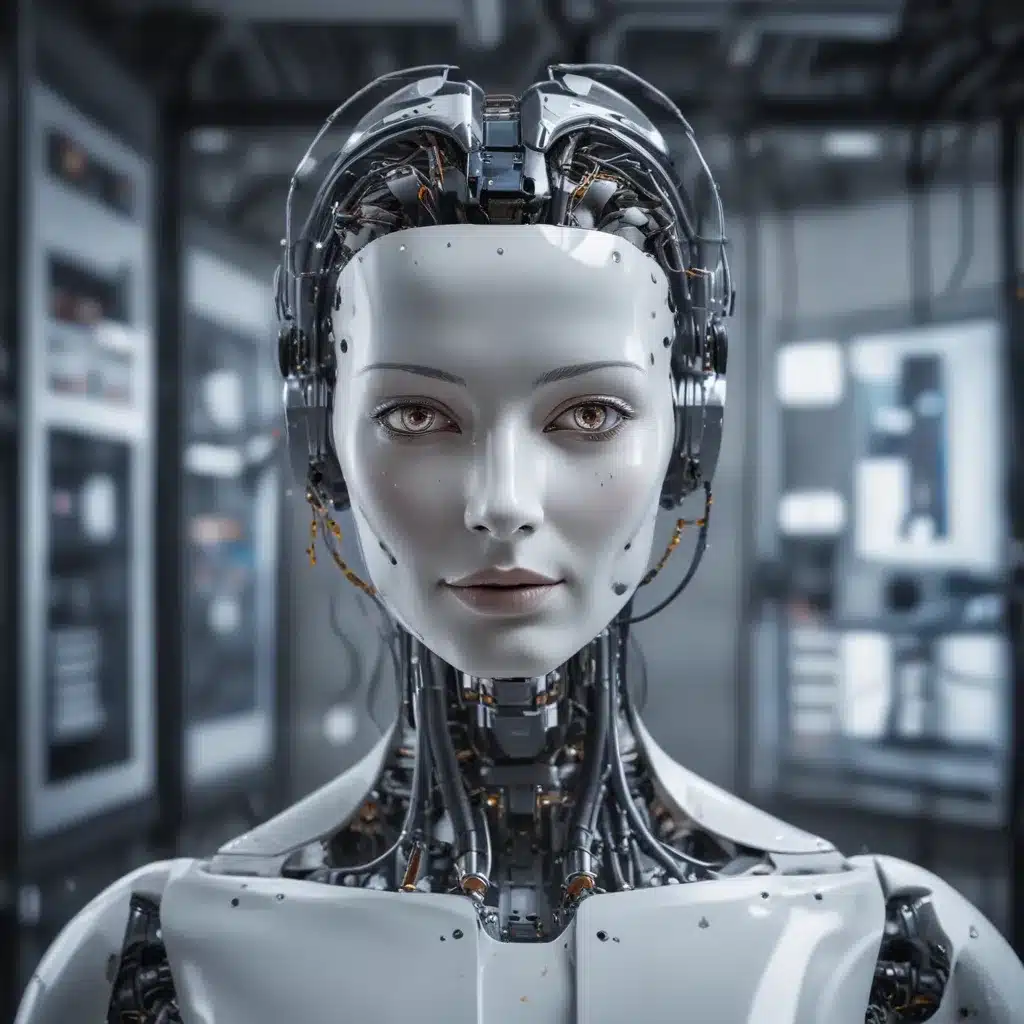
The Rise of Artificial Intelligence in Manufacturing
I have been closely following the rapid advancements in Artificial Intelligence (AI) and its potential impact on various industries. One area that has caught my attention is the computer manufacturing sector. The question that has been weighing on my mind is, “Will AI transform the way we produce computers and other electronic devices?”
To begin, let us first understand the current state of computer manufacturing. The process of manufacturing computers has traditionally been a labor-intensive and highly complex endeavor, involving intricate assembly lines, precision engineering, and meticulous quality control. Manufacturers have long relied on skilled human workers to oversee these processes, ensuring the production of high-quality, reliable products.
However, the landscape of computer manufacturing is poised for a seismic shift as AI technologies continue to evolve. AI-powered systems are increasingly capable of performing tasks that were once the exclusive domain of human workers, from automated assembly and quality control to predictive maintenance and supply chain optimization.
Automation and Precision: AI’s Impact on the Assembly Line
One of the most significant ways in which AI is transforming computer manufacturing is through the automation of assembly processes. AI-driven robotic systems are now capable of executing intricate assembly tasks with a level of precision and consistency that far surpasses human capabilities. These robotic systems can work tirelessly, without the need for breaks or rest, ensuring a continuous and efficient production flow.
Moreover, AI-powered vision systems can inspect components and assemblies with microscopic accuracy, detecting the slightest flaws or defects that would be easily missed by human inspectors. This enhanced quality control not only reduces the number of defective products, but it also minimizes the need for costly rework and improves overall product reliability.
Predictive Maintenance and Supply Chain Optimization
Another area where AI is transforming computer manufacturing is in the realm of predictive maintenance and supply chain optimization. By analyzing real-time data from sensors and IoT (Internet of Things) devices, AI algorithms can identify patterns and predict when equipment is likely to fail or require maintenance. This allows manufacturers to proactively address issues before they disrupt production, reducing downtime and improving overall equipment effectiveness (OEE).
Similarly, AI-powered supply chain management systems can optimize the flow of materials and components, ensuring that the right parts are available at the right time and in the right quantities. This not only reduces inventory costs but also minimizes the risk of production delays due to supply chain disruptions.
Enhancing the Human Workforce
While AI is poised to automate many tasks in computer manufacturing, it is important to note that it is not meant to replace human workers entirely. Instead, AI can be leveraged to enhance and empower the human workforce, freeing them from mundane, repetitive tasks and allowing them to focus on more strategic and creative aspects of the manufacturing process.
For example, AI-driven assistants can provide real-time guidance and support to workers, offering recommendations based on historical data and best practices. This can help to improve the efficiency and accuracy of manual tasks, while also reducing the cognitive load on workers.
Furthermore, AI can be used to analyze large datasets and identify patterns and insights that might be invisible to human analysts. This can inform decision-making, improve problem-solving, and drive continuous improvement initiatives, ultimately enhancing the overall competitiveness of the computer manufacturing enterprise.
The Future of Computer Manufacturing: A Symbiotic Relationship
As AI continues to evolve and become more deeply integrated into computer manufacturing processes, I believe we will witness a fundamental shift in the way computers and other electronic devices are produced. The combined power of AI and human expertise will create a symbiotic relationship, where each complements and enhances the other, resulting in unprecedented levels of efficiency, quality, and innovation.
Manufacturers who embrace this transformation and strategically implement AI-powered solutions will likely gain a significant competitive advantage. They will be able to respond more quickly to market demands, develop new products more efficiently, and maintain a high level of quality and reliability – all while reducing costs and improving overall profitability.
Challenges and Considerations
Of course, the integration of AI into computer manufacturing is not without its challenges. Issues such as data privacy, cybersecurity, and the potential displacement of human workers will need to be carefully navigated. Manufacturers will need to invest in robust data governance and security measures to protect sensitive information and ensure compliance with relevant regulations.
Additionally, the transition to an AI-driven manufacturing environment will require significant upfront investment in terms of infrastructure, training, and change management. Manufacturers will need to carefully plan and execute this transition, ensuring that their workforce is equipped with the necessary skills and that the organizational culture is receptive to the changes.
Conclusion: The Transformative Power of AI
In conclusion, the potential of AI to transform the computer manufacturing industry is undeniable. By automating repetitive tasks, enhancing quality control, optimizing supply chains, and empowering the human workforce, AI-powered systems can drive unprecedented levels of efficiency, agility, and innovation in the production of computers and other electronic devices.
As I look towards the future, I am excited to see how the symbiotic relationship between AI and human expertise will continue to evolve and shape the computer manufacturing landscape. The manufacturers who embrace this transformation and strategically harness the power of AI will undoubtedly position themselves for long-term success in an increasingly competitive and dynamic market.
Key Takeaways
- AI is transforming computer manufacturing through automation, precision, predictive maintenance, and supply chain optimization.
- AI-powered systems can enhance the human workforce, freeing them from mundane tasks and allowing them to focus on more strategic and creative aspects of the manufacturing process.
- The integration of AI into computer manufacturing will require careful planning, investment, and change management to address challenges such as data privacy, cybersecurity, and workforce displacement.
- Manufacturers who strategically implement AI-powered solutions will likely gain a significant competitive advantage in the computer manufacturing industry.












